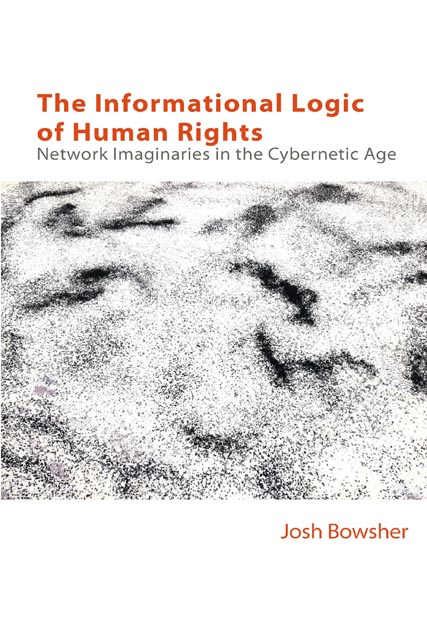Book contents
- Frontmatter
- Contents
- List of Illustrations
- Series Editors’ Preface
- Acknowledgements
- Introduction: Beyond the Neoliberal Critique?
- 1 Cybernetic Capitalism/Informational ‘Politics’
- 2 Seeing Violations as Events: Technologies of Capture and Cutting
- 3 Doing Rights as Indicators: Informatising Social and Economic Rights
- 4 When Violations Become Vectors: Human Rights Work in the Era of Big Data
- 5 After Informational Logic: Rethinking Information/Rethinking Rights
- Index
5 - After Informational Logic: Rethinking Information/Rethinking Rights
Published online by Cambridge University Press: 06 June 2023
- Frontmatter
- Contents
- List of Illustrations
- Series Editors’ Preface
- Acknowledgements
- Introduction: Beyond the Neoliberal Critique?
- 1 Cybernetic Capitalism/Informational ‘Politics’
- 2 Seeing Violations as Events: Technologies of Capture and Cutting
- 3 Doing Rights as Indicators: Informatising Social and Economic Rights
- 4 When Violations Become Vectors: Human Rights Work in the Era of Big Data
- 5 After Informational Logic: Rethinking Information/Rethinking Rights
- Index
Summary
The fact that the terms politicize and politics themselves have been put under erasure by the world-media system that is computational racial capital requires another discussion […] Ultimately it will entail the wholesale detournement of information.
– Jonathan Beller, The World ComputerIn his 2017 book, Eyal Weizman provides a window into the kinds of digital human rights work that his organisation, Forensic Architecture, has pioneered since its formation in 2010. From modelling the shooting of unarmed Palestinians to analysing bomb clouds and craters in Rafah, Weizman offers an overview of the innovative techniques that have enabled the organisation to uncover evidence of human rights abuses. Such an overview is particularly important given the growing contribution that techniques deployed by Forensic Architecture are making to the contemporary human rights movement. For instance, the organisation’s use of digital technologies to recover traces of violence that would otherwise remain undetected has become evidence in a growing number of legal cases, notably in proceedings against the state heard at the Israeli High Court and evidentiary submissions to the International Criminal Court.
From my own perspective, however, what is most interesting is the book’s engagement with the epistemologies of human rights, which simultaneously shape and constrain Forensic Architecture’s work, and the socio-political dilemmas that emerge as the organisation attempts to produce knowledge about violations. As Weizman argues, a key difficulty lies in the gap between the expectations placed upon expertise, which is ‘often understood to be preconditioned on a position of neutrality’, and the reality that, in his experience at least, political commitments inevitably shape the position of the expert: ‘no uninvolved investigator would have bothered to go to the lengths we have without being in solidarity with the victims’. The dilemma for Weizman is that political motivations can be both a source of strength and a critical weakness. On the one hand, the political and ideological commitments of activists inform all practices that aim at ‘fighting for and defending claims’ and can help ‘sharpen the quality of [their] research’. Nevertheless, ‘wearing one’s political passions too openly […] can make one vulnerable’. As Weizman points out, the ways his past statements and publications have been mobilised against Forensic Architecture’s investigations attests to the fact that a too full-blooded embrace of politics can make organisations open to accusations of bias.
- Type
- Chapter
- Information
- The Informational Logic of Human RightsNetwork Imaginaries in the Cybernetic Age, pp. 172 - 199Publisher: Edinburgh University PressPrint publication year: 2022



